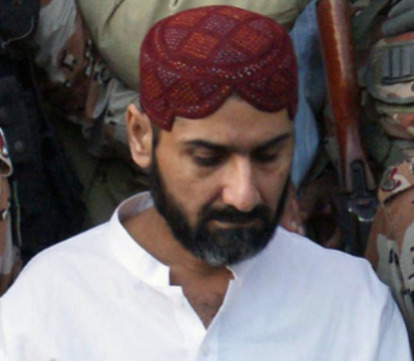On Wednesday, a criminal court in Karachi, the capital of Sind province, acquitted suspected crime boss Uzair Jan Baloch in his 41st criminal case due to insufficient evidence, according to his lawyer. This acquittal, involving a 2009 police encounter that killed his predecessor Abdul Rehman, alias “Rehman Dakait,” highlights significant flaws in Pakistan’s prosecution system, particularly for suspects with political connections.
Baloch, accused of building a criminal empire through extortion, kidnapping, and drug trafficking, has been cleared of charges 41 times since his arrest in 2016. His lawyer, Abid Zaman, expressed optimism that the remaining 18 cases against Baloch would also be dismissed due to lack of evidence.
Despite this acquittal, Baloch remains imprisoned on other charges, including a sentence from a military court for espionage for Iran. Baloch was known for his close ties to politicians in the ruling Pakistan People’s Party (PPP) in Sindh province.
Zoha Waseem, co-coordinator of the Urban Violence Research Network and author of Insecure Guardians: Enforcement, Encounters, and Everyday Policing in Postcolonial Karachi, noted the difficulty in providing evidence against politically connected individuals like Baloch. These individuals are often considered assets by various power centers in Pakistan, making it challenging to secure convictions against them.
Crime expert Arman Sabir explained that Baloch initially entered the criminal world seeking revenge for his father’s murder, which led to his involvement in numerous gang skirmishes and criminal cases. Sabir highlighted that political support from influential figures has helped Baloch avoid arrest and facilitated his acquittals, pointing to significant deficiencies in the police and prosecution’s handling of these cases.
Even if acquitted in all remaining cases, Baloch will remain in jail until his military court sentence is completed.















